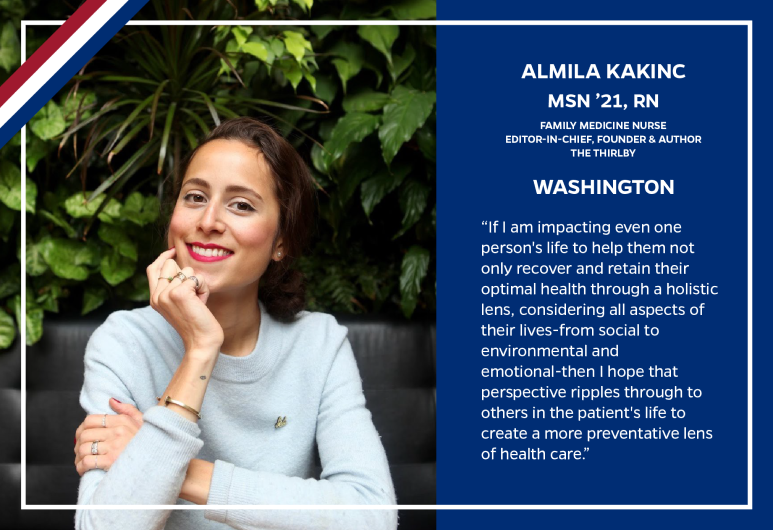A typical day for Almila Kakinc, MSN, RN, involves a lot of calls triaging a variety of patients. No two patients are the same, and working as a triage nurse at The Polyclinic in Seattle, Almila has come to see that the circumstances that make a patient are a variety of causes.
“As long as people have the outcomes of capitalism such as low wages, lack of or insufficient health insurance, racism, or issues such as environmental burden, we will not have true, equitable access to health care for all.”
Almila majored in Anthropology in college with a focus on Medical Anthropology. This educational experience has helps her view health through the lenses of accessibility, equity, and social determinants of health. Almila knows that the capitalist structure plays a major role in holding many people back from living the life they want to live.
Like much of the Pacific Northwest, Washington is comprised of many rural and suburban areas where lifestyles vary, sometimes drastically so. The natural landscape unknowingly creates a divide between social classes that can make accessible healthcare tricky.
“Our clinic serves a diverse group of people, ranging from people who don’t have socioeconomic barriers to Medicaid patients and immigrants who are new to this country.”
Encountering these barriers can make for challenging work, but Almila approaches it head on. Triaging patients to ensure they’re getting the necessary level of care to recover and retain their optimal level of health is the absolute goal for Almila. Treating people, and subsequently releasing them from care and back into their homes and communities is at the very core of what being a nurse is about.
“It is an honor to be a part of people’s lives, through sickness and health, through grief and birth.”
Currently, Almila is working on helping standardize protocols for common issues such as UTIs or COVID across the Seattle clinics to quicken access to care. By putting these protocols in place, patients will be able to get the care they need without unnecessary delay.
Click here to learn more about the programs at the Johns Hopkins School of Nursing.
Go to unitedstatesofnursing.org to see more stories in The United States of Nursing.

 Birth Companions Talk Doulas and Maternal Health with Mayor Brandon Scott
Birth Companions Talk Doulas and Maternal Health with Mayor Brandon Scott Earth Day: An Opportunity to Address the Environmental Injustice of Plastic Pollution
Earth Day: An Opportunity to Address the Environmental Injustice of Plastic Pollution Forging Policy: How Can Doulas Improve Black Maternal Health?
Forging Policy: How Can Doulas Improve Black Maternal Health? No. 1 Rankings for the School of Nursing and a Pipeline to the “Best Jobs”
No. 1 Rankings for the School of Nursing and a Pipeline to the “Best Jobs” Global Service Learning: Guatemala
Global Service Learning: Guatemala



